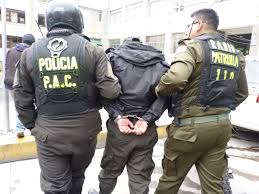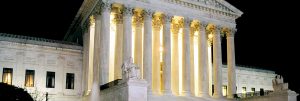Yes, you can aid and abet a federal conspiracy in the Fifth Circuit (Part Four)
 However, in United States v. Walker, 621 F.2d 163 (5th Cir. 1980), the Fifth Circuit held that there was no error in giving an aiding and abetting instruction in a conspiracy case because the conspiracy counts are substantive counts. Aiding and abetting makes one a party to the crime by the actions that aid and abet the conspiracy. This logic seems flawed as conspiring to commit a substantive crime and aiding and abetting a substantive crime, which does not require an agreement to join in a conspiracy to commit the crime, are different manners and means in themselves. Thus, attorneys in the Fifth Circuit should continue to challenge aiding and abetting jury instructions in conspiracy cases all the way up to the Supreme Court.
However, in United States v. Walker, 621 F.2d 163 (5th Cir. 1980), the Fifth Circuit held that there was no error in giving an aiding and abetting instruction in a conspiracy case because the conspiracy counts are substantive counts. Aiding and abetting makes one a party to the crime by the actions that aid and abet the conspiracy. This logic seems flawed as conspiring to commit a substantive crime and aiding and abetting a substantive crime, which does not require an agreement to join in a conspiracy to commit the crime, are different manners and means in themselves. Thus, attorneys in the Fifth Circuit should continue to challenge aiding and abetting jury instructions in conspiracy cases all the way up to the Supreme Court.
This is illogical because one does not aid and abet an agreement. One can aid and abet a substantive crime, but an agreement is between two or more persons to commit a crime. The agreement between the two persons to commit the crime is the focus of the conspiracy count. Whether it is completed or not, two people are guilty of it if the agreement is proven along with an overt act and knowledge of illegality.
Similarly, and abetting can only take place when a completed crime has taken place, and one helps at the beginning or the end with the intent to help out, whether they conspire or do not conspire. If one finds out that their relative has robbed a bank, and they then decide to help launder the money or hide the evidence, they are potentially guilty of aiding and abetting said robbery, but not conspiracy to commit the same robbery. The Fifth Circuit needs to take a harder look at this issue.
 Sherman & Plano, TX Criminal Defense Lawyer Blog
Sherman & Plano, TX Criminal Defense Lawyer Blog



 One of the realities that I must tell clients charged with conspiracy counts in the Eastern District of Texas, most often conspiracy to possess with the intent to distribute narcotics, is that you can aid and abet a conspiracy in the Fifth Circuit Court of Appeals, which includes all Texas Federal District Courts. Thus, the Government will not only submit jury charges for drug conspiracy, which the Fifth Circuit holds to be an independent crime in itself, they will submit a jury charge on aiding and abetting that conspiracy, which will end in the same result if found true beyond a reasonable doubt.
One of the realities that I must tell clients charged with conspiracy counts in the Eastern District of Texas, most often conspiracy to possess with the intent to distribute narcotics, is that you can aid and abet a conspiracy in the Fifth Circuit Court of Appeals, which includes all Texas Federal District Courts. Thus, the Government will not only submit jury charges for drug conspiracy, which the Fifth Circuit holds to be an independent crime in itself, they will submit a jury charge on aiding and abetting that conspiracy, which will end in the same result if found true beyond a reasonable doubt. In Morrison v. National Australia Bank, 561 U.S. 247 (2010), the Supreme Court applied the presumption against extraterritoriality to securities fraud statutes. Again in Kiobel v. Royal Dutch Petroleum, 133 S.Ct. 1659 (2013), the Supreme Court applied the presumption and held the plaintiff lacked extraterritorial jurisdiction under the Alien Tort Statute. In 2016, however, in RJR Nabisco, Inc. v. European Community, 136 S.Ct. 2090 (2016), the Court held the Racketeer Influenced and Corrupt Organizations Act (RICO) could apply extraterritorially. But the Court severely limited the application of RICO to foreign conduct that violates “a predicate statute that manifests an unmistakable congressional intent to apply extraterritorially.” Still, the Court held RICO’s private right of action does not overcome the presumption. Thus, the Supreme Court has revived the presumption against extraterritoriality and reinforced a high burden to overtake the canon to apply a law extraterritorially.
In Morrison v. National Australia Bank, 561 U.S. 247 (2010), the Supreme Court applied the presumption against extraterritoriality to securities fraud statutes. Again in Kiobel v. Royal Dutch Petroleum, 133 S.Ct. 1659 (2013), the Supreme Court applied the presumption and held the plaintiff lacked extraterritorial jurisdiction under the Alien Tort Statute. In 2016, however, in RJR Nabisco, Inc. v. European Community, 136 S.Ct. 2090 (2016), the Court held the Racketeer Influenced and Corrupt Organizations Act (RICO) could apply extraterritorially. But the Court severely limited the application of RICO to foreign conduct that violates “a predicate statute that manifests an unmistakable congressional intent to apply extraterritorially.” Still, the Court held RICO’s private right of action does not overcome the presumption. Thus, the Supreme Court has revived the presumption against extraterritoriality and reinforced a high burden to overtake the canon to apply a law extraterritorially. However, there is a “longstanding principle of American law that legislation of Congress, unless a contrary intent appears, is meant to apply only within the territorial jurisdiction of the United States.”
However, there is a “longstanding principle of American law that legislation of Congress, unless a contrary intent appears, is meant to apply only within the territorial jurisdiction of the United States.”  I was having a few flashbacks to civil procedure class in a recent Federal extradition case recently. In law school, we had to learn the International Shoe standard of “minimum contacts which do not disturb traditional notions of fair play and substantial justice” according to International Shoe, whereby a state in America obtains jurisdiction over a citizen of another American state. Like trial lawyers, the United States wants its jurisdiction to spread far and wide. It is a principal of Admiralty law that the United States has jurisdiction oceanwide. Congress has also passed several laws to extend Federal criminal law jurisdiction as broadly as possible around the world.
I was having a few flashbacks to civil procedure class in a recent Federal extradition case recently. In law school, we had to learn the International Shoe standard of “minimum contacts which do not disturb traditional notions of fair play and substantial justice” according to International Shoe, whereby a state in America obtains jurisdiction over a citizen of another American state. Like trial lawyers, the United States wants its jurisdiction to spread far and wide. It is a principal of Admiralty law that the United States has jurisdiction oceanwide. Congress has also passed several laws to extend Federal criminal law jurisdiction as broadly as possible around the world. But, a defendant like Dr. Kavanaugh might offer evidence of good character in general as a defense, which can be a defense in itself. United States Court of Appeals for the Fifth Circuit Pattern Jury Charge 1.09 explains that
But, a defendant like Dr. Kavanaugh might offer evidence of good character in general as a defense, which can be a defense in itself. United States Court of Appeals for the Fifth Circuit Pattern Jury Charge 1.09 explains that On direct examination, neither party can testify as to specific instances of misconduct to show truthfulness or untruthfulness. However, 608(b) states “…[b]ut the court may, on cross-examination, allow them to be inquired into if they are probative of the character for truthfulness or untruthfulness of: (1) the witness; or (2) another witness whose character the witness being cross-examined has testified about.” Specific instances of untruthfulness do not appear to be a major piece of evidence yet, but Kavanaugh’s opponents have claimed that he has lied under oath several times so far. If they were able to prove it extrinsically, they could potentially do so on cross-examination of him.
On direct examination, neither party can testify as to specific instances of misconduct to show truthfulness or untruthfulness. However, 608(b) states “…[b]ut the court may, on cross-examination, allow them to be inquired into if they are probative of the character for truthfulness or untruthfulness of: (1) the witness; or (2) another witness whose character the witness being cross-examined has testified about.” Specific instances of untruthfulness do not appear to be a major piece of evidence yet, but Kavanaugh’s opponents have claimed that he has lied under oath several times so far. If they were able to prove it extrinsically, they could potentially do so on cross-examination of him. Here, we are dealing with a 35 year-old allegation of sexual misconduct for which no physical evidence would be present due to the age of the case and the nature of the allegation. Additionally, Kavanaugh has not stated that he and Ford engaged in criminal activity, so (B) is out. (C) is interesting as a catchall of “constitutional” admissibility. The only way this would normally come in is as “alternative perpetrator.” evidence. If Kavanaugh attempts to say that third party did the act Ford alleges, and could provide a foundation for the evidence, this sexual conduct could become admissible. But, some Courts have said that this is normally only relevant when identity is an issue. Kavanaugh could argue that intoxication and history make his identity an issue, but his primary defense of fabrication would be confused. So, this wouldn’t be a likely course.
Here, we are dealing with a 35 year-old allegation of sexual misconduct for which no physical evidence would be present due to the age of the case and the nature of the allegation. Additionally, Kavanaugh has not stated that he and Ford engaged in criminal activity, so (B) is out. (C) is interesting as a catchall of “constitutional” admissibility. The only way this would normally come in is as “alternative perpetrator.” evidence. If Kavanaugh attempts to say that third party did the act Ford alleges, and could provide a foundation for the evidence, this sexual conduct could become admissible. But, some Courts have said that this is normally only relevant when identity is an issue. Kavanaugh could argue that intoxication and history make his identity an issue, but his primary defense of fabrication would be confused. So, this wouldn’t be a likely course.